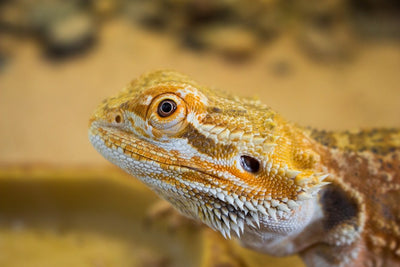Chihuahuas, with their petite frames and energetic dispositions, have unique dietary requirements. They require a diet rich in high-quality proteins, healthy fats, carbohydrates, vitamins, and minerals. These components are crucial to support their metabolism, maintain their energy levels, and ensure overall well-being. Due to their small size, even minor nutritional imbalances can have significant impacts, making it essential to provide a carefully balanced diet. Additionally, Chihuahuas are prone to certain health issues, such as hypoglycemia and dental problems, which can be managed or mitigated through proper nutrition.
The Role of Proteins
Proteins are the building blocks of a Chihuahua's body. They support muscle development, tissue repair, and immune function. A protein-rich diet is essential, especially for Chihuahua puppies, who are in the critical stages of growth. Look for foods that list real meat, such as chicken, beef, or fish, as the first ingredient to ensure adequate protein intake. Beyond supporting growth, proteins are vital for maintaining muscle mass in adult and senior Chihuahuas, preventing muscle atrophy as they age. It's important to choose protein sources that are easily digestible and hypoallergenic to prevent any potential food sensitivities.
Importance of Healthy Fats
Healthy fats are not only a source of concentrated energy but also support skin health and a shiny coat. Omega-3 and Omega-6 fatty acids are particularly beneficial. These fats can be sourced from fish oils or flaxseed, both of which are excellent additions to your Chihuahua's diet. In addition to promoting skin and coat health, healthy fats play a role in cognitive function and can help manage inflammation. Incorporating the right balance of fats in your Chihuahua's diet can also aid in nutrient absorption, particularly fat-soluble vitamins like A, D, E, and K.
Carbohydrates for Energy
While proteins and fats are critical, carbohydrates also play a pivotal role by providing the energy needed for your Chihuahua's lively nature. Opt for complex carbohydrates such as brown rice, sweet potatoes, or oats, which offer sustained energy release and aid in digestive health. Complex carbohydrates are also a great source of dietary fiber, which is essential for maintaining a healthy digestive system and preventing constipation. It's important to avoid simple carbohydrates that can cause spikes in blood sugar levels, opting instead for whole grains and vegetables that provide nutritional value without unnecessary sugars.
What to Feed a Chihuahua Puppy
Feeding Chihuahua puppies requires special attention. Their rapid growth and development necessitate a diet high in calories and nutrients. When searching for good dog food for Chihuahua puppies, prioritize formulas specifically designed for small breeds. These are typically richer in essential nutrients and are easier for tiny mouths to chew. Additionally, small breed puppy formulas often contain higher protein and fat content to support their energetic lifestyles and developmental needs. It's crucial to monitor their growth and adjust their diet accordingly to prevent obesity and ensure they receive balanced nutrition.
Feeding Schedule and Portion Control
Determining how much food a Chihuahua puppy should eat is crucial. Generally, puppies should be fed three to four times a day to maintain energy levels and prevent hypoglycemia, a common issue in small breeds. Consult a Chihuahua feeding chart for more precise portion recommendations based on age and weight. Regularly assessing their body condition and weight can help tailor portion sizes to prevent overfeeding. As they grow, gradually transition to fewer meals per day, but maintain the nutrient density required for their development.
Adult Chihuahua Diet
As Chihuahuas transition from puppies to adults, their caloric and nutritional needs change. The best dog food for a Chihuahua during adulthood will contain balanced levels of protein, fat, and fiber to maintain health and vitality. Ensure the diet is fortified with antioxidants and essential fatty acids for continued immune support and coat health. Adult Chihuahuas benefit from a diet that supports their active lifestyle while preventing weight gain. Monitoring their caloric intake and adjusting for their activity level is key to maintaining an ideal weight and preventing obesity-related health issues.
How Much Food Should a Chihuahua Eat?
Determining how much food your Chihuahua should eat a day depends on several factors, including age, weight, and activity level. On average, an adult Chihuahua may require about 200-300 calories per day. It's essential to adjust portions based on your dog's specific needs and consult with a veterinarian for tailored advice. Observing your Chihuahua's body condition and weight regularly will help ensure they are not under or overfed. A consistent feeding routine, combined with regular exercise, will support their metabolic health and prevent unnecessary weight gain.
Feeding Frequency
Most adult Chihuahuas do well with two meals a day. This schedule helps prevent overeating and supports a healthy metabolism. Ensure that feeding times are consistent to help regulate their digestive system. Consistency in feeding times can also help manage your Chihuahua's energy levels throughout the day. For particularly active Chihuahuas, you may consider splitting their daily intake into smaller, more frequent meals to maintain energy without overloading their digestive system.
Senior Chihuahua Nutrition
As Chihuahuas age, their dietary needs evolve. The best food for a senior Chihuahua should focus on maintaining a healthy weight, supporting joint health, and promoting overall vitality. Senior dog food formulas often contain glucosamine and chondroitin for joint support and adjusted protein and fat levels to prevent obesity. As metabolism slows with age, reducing calorie intake while maintaining nutrient density becomes important to prevent weight gain and associated health issues. Senior Chihuahuas may also benefit from diets with higher fiber content to support digestive regularity and kidney health.
Special Considerations for Senior Chihuahuas
Older Chihuahuas might face dental issues, making it difficult to chew hard kibble. Consider incorporating wet food or softening dry kibble with warm water or broth. Additionally, senior dogs may benefit from a diet with added fiber to aid digestion. Supplements such as omega fatty acids can support cognitive function and reduce inflammation, contributing to a better quality of life. Regular veterinary check-ups are essential to monitor changes in health and adjust their diet to manage age-related conditions effectively.
What is the Healthiest Diet for a Chihuahua?
Creating a nutritious diet for your Chihuahua involves a combination of high-quality commercial dog food and fresh ingredients. Here are some tips to ensure your Chihuahua receives a balanced diet:
- Choose high-quality commercial dog food: Look for brands that use natural ingredients without artificial additives or fillers. Opt for those that have undergone feeding trials and meet AAFCO standards, ensuring they provide complete and balanced nutrition.
- Incorporate fresh foods: Add fresh fruits and vegetables like carrots, blueberries, and spinach, which provide additional vitamins and antioxidants. These can be offered as treats or mixed into their regular meals, enhancing flavor and nutritional content.
- Monitor treats: Treats should not exceed 10% of your Chihuahua's daily caloric intake to prevent weight gain. Choose healthy, low-calorie treat options and use them primarily for training and rewarding good behavior.
Conclusion
Feeding your Chihuahua the right nutrients is essential for their health and longevity. By understanding their unique dietary needs and providing a balanced diet, you ensure that your Chihuahua remains a vibrant and joyful companion. Always consult with your veterinarian to tailor a diet plan that best suits your Chihuahua's specific requirements and lifestyle. Remember, a well-fed Chihuahua is a happy and healthy one!
Through mindful nutrition and regular veterinary check-ups, you can help your Chihuahua thrive and enjoy a fulfilling life by your side. Prioritize their dietary needs at each life stage, and you'll foster a strong, enduring bond with your Chihuahua based on trust and care. By being attentive to their nutritional health, you contribute significantly to their overall well-being, ensuring they lead a long, active, and content life.






